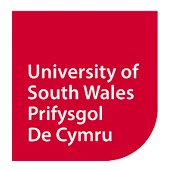The Legacy Of The National Eisteddfod
During the first week of August 2024, Pontypridd was transformed into the cultural capital of Wales, hosting the National Eisteddfod, one of the largest and most diverse cultural festivals in Europe. This year’s Eisteddfod was unique in that it was located in the beautiful setting of Ynysangharad Park, right in the middle of the town, whereas it is usually placed on farm fields miles away from the nearest built up area, allowing those visiting the event to walk the streets of Ponty, its bars, shops and cafes, with ease.
Pontypridd RFC also benefitted greatly from the event, being the chosen location for the main night time gigs of the week, organised by Cymdeithas yr Iaith Gymraeg (Welsh Language Society). A huge vote of thanks must be given to club officials, particularily so Paul Marshall from the General Committee, for negotiating the terms and conditions of holding the Cymdeithas gigs at Sardis Road, and to Bar Manager Mark Davies and his team for the sheer hard work of stocking and serving the hundreds of gallons of beer and spirits required to lubricate the week’s activities. The events, ranging from poetry contests to folk and rock concerts, were packed out as the week went on – beautifully busy.
The week passed by and it was generally lauded as one of the best Eisteddfods of recent times. The focus now turns, as it does every year after the big festival has left town, to what the legacy of staging the event will be on the area which it visited. This is of particular importance for a valleys community like Pontypridd, which over the past century and a half, has seen the Welsh language in decline. When the Eisteddfod last visited Ponty back in 1893, 66% of the population were natural and fluent Welsh speakers, compared to just over 20% in the Rhondda Cynon Taf area now.
As the Eisteddfod showed so well in all its diversity, the Welsh language belongs to us all, whether we can speak it fluently or not, and is not the preserve of some cultural elite as is sometimes portrayed. The legacy of the Eisteddfod will hopefully be to give the language a boost in this community, to encourage those who are short on confidence to use it more regularily, to engage in activities and conversations through its medium. Pontypridd RFC, which was proud to host the event’s night time gigs, can play its own part in such a revival. The club has an official Welsh language policy, has signage around the ground, wordage on social media and provides an article every month to the local community magazine ‘Tafod Elai’. The real challenge is to promote the spoken word in Welsh around the club, to make it a natural means of communication for those able to use a vocabulary, however limited, and we can all play our part in that.
It was Evan James, a resident of this town, when composing the words of our national anthem back in 1856, who penned the famous line “O bydded i’r heniaith barhau”. Ask your nearest Welsh speaker the meaning and the implication of that line, and why not make it the starting point of your conversation the next time you’re at the Clubhouse Bar at Sardis Road…
Guto Davies
Club Media Team



























